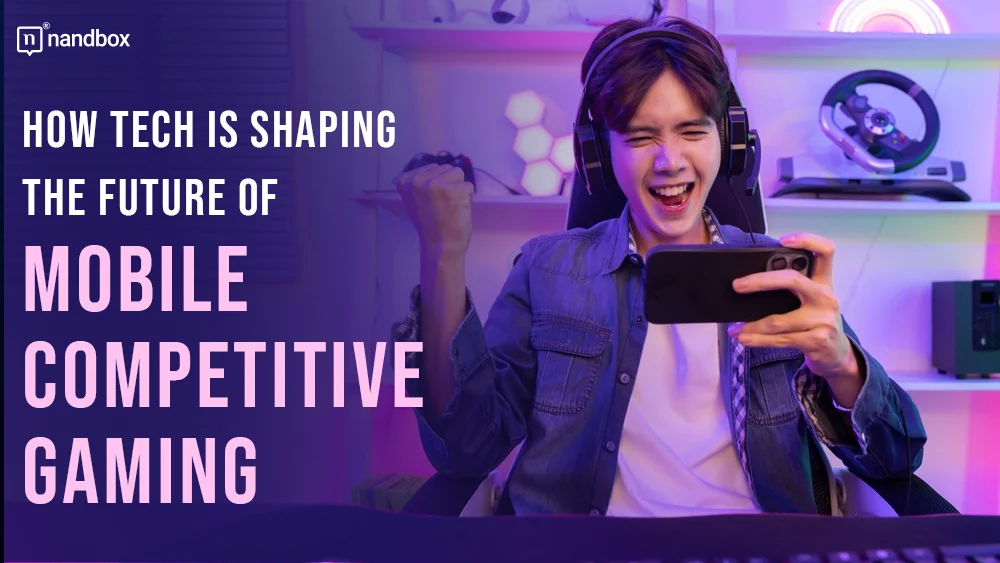Mobile gaming has had phenomenal growth in recent years, cementing its position as a leading force in the worldwide gaming industry. What began as simple, casual games designed for smartphones has evolved into a platform for highly competitive multiplayer experiences that fascinate millions of players worldwide. This transition is driven by technological improvements and new developments that have reshaped how games are made, delivered, and played on mobile devices.
Behind this progress is a strong ecosystem of cutting-edge technologies. Including as faster CPUs, improved graphics capabilities, and more complex network infrastructures that enable flawless online play.
As we look ahead, multiple technical changes are set to revolutionize competitive gaming on mobile platforms. From increased in-game communication tools and cross-platform capabilities to the expanding influence of esports on mobile. These developments are poised to push the frontiers of mobile gaming, providing players with more immersive and engaging experiences than ever before. With such quick improvements, mobile gaming is not only becoming more accessible, but also more competitive. Pushing the gaming landscape’s traditional boundaries and paving the way for an exciting future.
-
Mobile Hardware Advancements:
The foundation of mobile gaming’s success is the powerful hardware in modern smartphones. Processors such as Qualcomm’s Snapdragon and MediaTek’s Dimensity chips deliver PC-like performance, making mobile devices capable of running intensive, graphically demanding games. High-refresh-rate displays (90Hz and 120Hz) are now commonplace in gaming phones, providing smoother gameplay and faster response times, which are critical in competitive gaming.
For players, these advancements translate to a more immersive experience with seamless visuals, faster load times, and precision in control. All of which are vital for maintaining competitiveness in battle royale and multiplayer games.
-
Connectivity and 5G Networks:
Mobile competitive gaming thrives on real-time multiplayer action, and reliable internet connectivity is key. The advent of 5G technology has opened the door to a new era of gaming. Offering extremely low latency, faster data speeds, and the ability to connect more devices at once. These features make it easier for players to engage in large-scale multiplayer battles without suffering from lag or disconnections.
Moreover, with cloud gaming services gaining traction, players can now access high-performance games without needing top-tier hardware. This democratizes the competitive gaming landscape by making advanced gaming experiences available to more players, no matter their device.
-
Artificial Intelligence and Smart Matchmaking:
Artificial Intelligence (AI) is another game-changing factor in mobile gaming. AI-driven matchmaking systems ensure that players are paired with others of similar skill levels, leading to more balanced and competitive matches. This is particularly important in the fast-paced world of mobile esports. Where fair competition is essential for engagement and long-term success.
In addition to matchmaking, AI also plays a role in providing realistic game bots that fill in for human players when necessary. Keeping the game going smoothly without interruption.
-
Game Engines and Graphic Optimization:
The gaming experience on mobile devices has become more visually stunning, thanks to sophisticated game engines like Unity and Unreal Engine. These engines have been optimized for mobile platforms, allowing developers to create graphically rich games that still perform efficiently on smartphones.
Technologies such as dynamic resolution scaling and texture streaming ensure that even mid-range devices can handle complex game worlds without compromising on performance, a crucial aspect for competitive gaming where every frame counts.
-
The Rise of Mobile Esports:
Esports, once dominated by PC and console games, has made its way to mobile devices. Fueled by the rise of competitive mobile titles. Major tournaments, with prize pools in the millions, are now being held for mobile gamers, attracting top-tier talent and massive audiences globally.
Streaming platforms like YouTube and Twitch have also played a significant role in promoting mobile esports. Making it easier for fans to follow their favorite players and teams. Mobile game developers are capitalizing on this trend by integrating features that allow seamless live streaming directly from the app, bringing competitive gaming into the mainstream.
-
The Role of Cloud Gaming:
Cloud gaming is another frontier where technology is revolutionizing mobile gaming. Services such as Google Stadia and NVIDIA GeForce Now allow players to stream games directly to their mobile devices without downloading or installing them. This technology enables even low-end smartphones to run graphically intensive games by offloading the computational work to remote servers.
As internet speeds continue to improve and cloud gaming becomes more accessible. It will likely expand the competitive gaming landscape by enabling more players to participate, regardless of their hardware limitations.
Conclusion:
Technology continues to play a pivotal role in shaping the future of mobile competitive gaming. From hardware improvements to advancements in AI, connectivity, and game engines. These innovations are enhancing the gaming experience and expanding the reach of competitive titles. Also, as mobile esports continues to grow and cloud gaming becomes more prevalent. The line between traditional gaming platforms and mobile devices is rapidly blurring.
One such game that benefits from these technological advancements is Free Fire advance, which has leveraged innovations in mobile tech to provide a fast-paced, competitive gaming experience for millions of players around the world. With more technological advancements on the horizon. Mobile gaming is set to become even more immersive and competitive, further cementing its place in the global esports ecosystem.




